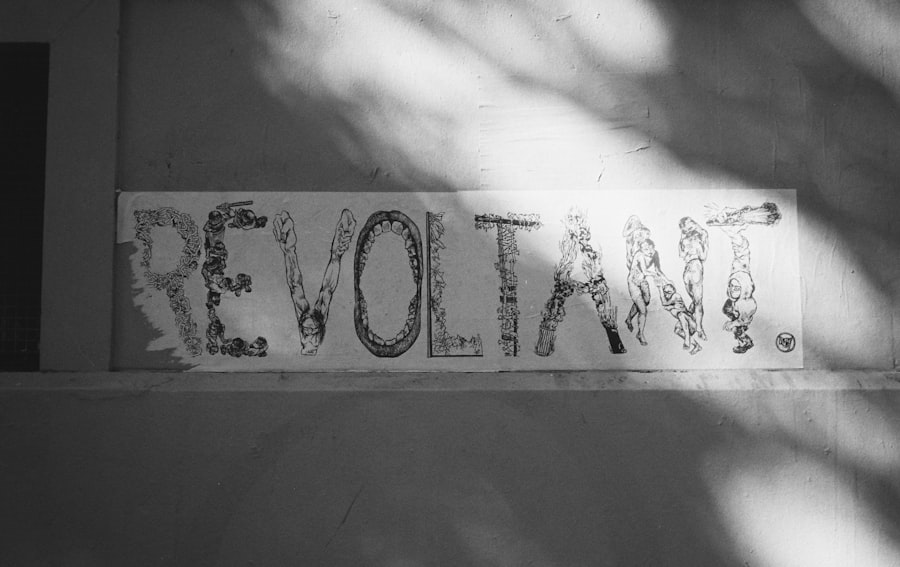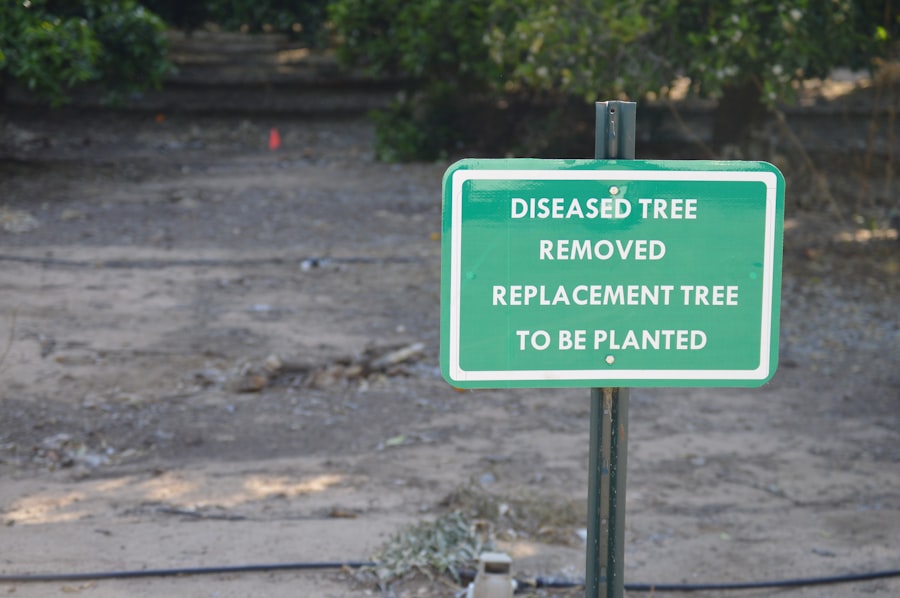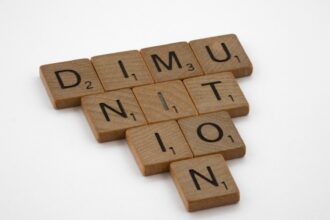Depersonalization-derealization disorder (DPDR) is a dissociative condition that can leave you feeling detached from your thoughts, feelings, or sense of self. You may experience a sense of unreality, as if you are observing yourself from outside your body or feeling disconnected from your surroundings. This can be a disconcerting experience, often leading to confusion and anxiety.
You might find yourself questioning the authenticity of your experiences, as if you are living in a dream or a movie. This disorder can manifest in various ways, and while it can be temporary for some, for others, it may become a chronic condition that significantly impacts daily life. The experience of depersonalization can be unsettling, as it often feels like you are losing touch with who you are.
You may feel as though your emotions are muted or that you are merely going through the motions of life without truly engaging with it. Derealization, on the other hand, involves a sense of detachment from your environment. You might perceive the world around you as foggy, distorted, or unreal.
These experiences can be triggered by stress, trauma, or even substance use, and understanding them is crucial for managing their effects on your life.
Key Takeaways
- Depersonalization Derealization is a mental health condition characterized by feeling detached from oneself and the world around them.
- The use of weed or marijuana can exacerbate symptoms of Depersonalization Derealization in some individuals.
- Symptoms of Depersonalization Derealization include feeling like an outside observer of one’s thoughts and actions, emotional numbness, and distorted perception of time and space.
- Coping strategies for Depersonalization Derealization may include mindfulness techniques, grounding exercises, and seeking professional therapy.
- Seeking professional help for Depersonalization Derealization is important for proper diagnosis and treatment, which may include therapy and medication.
- Lifestyle changes such as regular exercise, healthy eating, and stress management can help manage symptoms of Depersonalization Derealization.
- Connecting with others who have experienced Depersonalization Derealization can provide support and understanding.
- Moving forward after Depersonalization Derealization may involve ongoing therapy, self-care practices, and building a support network.
The Relationship Between Weed and Depersonalization Derealization
The relationship between cannabis use and depersonalization-derealization is complex and multifaceted. For some individuals, consuming marijuana can trigger or exacerbate feelings of depersonalization and derealization. If you are prone to anxiety or have a history of dissociative experiences, using weed may heighten these sensations, leading to an overwhelming sense of detachment.
The psychoactive component of cannabis, THC, can alter your perception and cognitive function, which may contribute to feelings of unreality. Conversely, some people use cannabis as a means to cope with their symptoms of depersonalization-derealization. They may find temporary relief from anxiety or stress through its use.
However, this can be a double-edged sword; while it may provide short-term comfort, it can also lead to increased anxiety in the long run or create a dependency on the substance for relief. If you find yourself using weed to escape feelings of depersonalization or derealization, it’s essential to reflect on whether this is a healthy coping mechanism or if it might be exacerbating your condition.
Symptoms of Depersonalization Derealization

Recognizing the symptoms of depersonalization-derealization is vital for understanding your experience and seeking appropriate help. One of the hallmark symptoms is the feeling of being an observer of your own life. You might feel as though you are watching yourself from a distance, which can create a sense of alienation from your own thoughts and actions.
This disconnection can lead to confusion about your identity and a feeling that you are not in control of your own body. In addition to this sense of detachment, you may also experience emotional numbness or a lack of connection to your feelings. This can make it challenging to engage with others or enjoy activities that once brought you joy.
Derealization symptoms often include perceiving the world around you as distorted or dreamlike. You might notice that colors seem less vibrant or that sounds are muted. These experiences can be distressing and may lead to increased anxiety or panic attacks as you grapple with the fear of losing touch with reality.
Coping Strategies for Depersonalization Derealization
| Strategy | Description |
|---|---|
| Grounding Techniques | Using sensory input to connect with the present moment, such as deep breathing, touching objects, or focusing on the environment. |
| Mindfulness Meditation | Practicing mindfulness to increase awareness of the present moment and reduce feelings of detachment. |
| Cognitive Behavioral Therapy (CBT) | Working with a therapist to identify and challenge negative thought patterns and beliefs related to depersonalization and derealization. |
| Self-Care | Engaging in activities that promote relaxation and well-being, such as exercise, hobbies, and spending time with supportive people. |
| Seeking Professional Help | Consulting with a mental health professional for personalized treatment and support. |
Finding effective coping strategies for managing depersonalization-derealization can empower you to regain a sense of control over your experiences. One approach is grounding techniques, which help anchor you in the present moment. You might try focusing on your physical sensations—feeling the texture of an object in your hand or noticing the temperature of the air around you.
Engaging your senses can help bridge the gap between your internal experience and the external world. Mindfulness practices can also be beneficial in managing symptoms. By cultivating awareness of your thoughts and feelings without judgment, you can create space for acceptance rather than resistance.
Techniques such as meditation or deep-breathing exercises can help reduce anxiety and promote relaxation. Additionally, journaling about your experiences may provide insight into triggers and patterns, allowing you to better understand your condition and develop personalized coping strategies.
Seeking Professional Help for Depersonalization Derealization
If you find that depersonalization-derealization significantly impacts your daily life, seeking professional help is an important step toward recovery. A mental health professional can provide support and guidance tailored to your specific needs. Therapy options such as cognitive-behavioral therapy (CBT) have shown promise in treating DPDR by helping you reframe negative thought patterns and develop healthier coping mechanisms.
Medication may also be considered in some cases, particularly if anxiety or depression accompanies your symptoms.
Remember that seeking help is not a sign of weakness; rather, it demonstrates strength and a commitment to improving your mental health and overall well-being.
Lifestyle Changes to Manage Depersonalization Derealization

Incorporating lifestyle changes can play a significant role in managing depersonalization-derealization symptoms effectively. Regular physical activity is one such change that can enhance your overall mental health. Exercise releases endorphins, which can improve mood and reduce feelings of anxiety.
Whether it’s going for a walk, practicing yoga, or engaging in team sports, finding an activity that resonates with you can foster a sense of connection to both your body and the world around you. Additionally, prioritizing sleep hygiene is crucial for mental well-being. Poor sleep can exacerbate feelings of detachment and contribute to increased anxiety levels.
Establishing a consistent sleep schedule, creating a calming bedtime routine, and minimizing screen time before bed can help improve the quality of your sleep. Furthermore, maintaining a balanced diet rich in nutrients can support brain health and emotional stability, providing another layer of resilience against symptoms.
Connecting with Others Who Have Experienced Depersonalization Derealization
Connecting with others who have experienced depersonalization-derealization can provide invaluable support and understanding. You may find comfort in sharing your experiences with individuals who truly understand what you’re going through. Online forums and support groups dedicated to DPDR offer safe spaces where you can discuss your feelings without fear of judgment.
Engaging with others who share similar struggles can foster a sense of community and reduce feelings of isolation. In-person support groups may also be available in your area, providing opportunities for face-to-face connection and shared experiences. Hearing others’ stories can offer new perspectives on coping strategies and inspire hope for recovery.
Remember that you are not alone in this journey; many individuals have navigated similar challenges and emerged stronger on the other side.
Moving Forward After Depersonalization Derealization
Moving forward after experiencing depersonalization-derealization involves embracing a journey of self-discovery and healing. It’s essential to acknowledge that recovery is not linear; there will be ups and downs along the way. Cultivating patience with yourself during this process is crucial as you learn to navigate your experiences with greater awareness and resilience.
As you continue to explore coping strategies and seek support from professionals and peers alike, remember that growth often comes from adversity. Your experiences with depersonalization-derealization may lead to greater self-awareness and empathy for others facing similar challenges. By sharing your story and advocating for mental health awareness, you contribute to breaking down stigma surrounding dissociative disorders and fostering understanding within society.
In conclusion, understanding depersonalization-derealization is the first step toward managing its effects on your life. By exploring its relationship with substances like cannabis, recognizing symptoms, implementing coping strategies, seeking professional help, making lifestyle changes, connecting with others, and embracing the journey ahead, you empower yourself to reclaim your sense of self and navigate life with renewed purpose and clarity.
Depersonalization and derealization are often reported by individuals who have recently quit using cannabis, as the brain adjusts to the absence of the substance. These experiences can be unsettling, as they involve feelings of detachment from one’s own body or surroundings. For those seeking more information on this topic, an insightful article can be found on Unplugged Psychology’s website. This article delves into the psychological effects of quitting cannabis and offers guidance on managing these symptoms. You can read more about it by visiting Unplugged Psychology.
LEARN MORE About Depersonalization & Derealization
FAQs
What is depersonalization-derealization disorder?
Depersonalization-derealization disorder is a mental health condition characterized by feeling detached from oneself (depersonalization) and feeling detached from the world around them (derealization). It can be a distressing and disruptive experience for those who suffer from it.
Can quitting weed cause depersonalization-derealization disorder?
Quitting weed can sometimes trigger depersonalization-derealization symptoms in individuals who are predisposed to the disorder. This can occur as a result of the brain’s adjustment to the absence of the drug and the associated withdrawal symptoms.
What are the symptoms of depersonalization-derealization disorder?
Symptoms of depersonalization-derealization disorder may include feeling like an outside observer of one’s thoughts, feelings, and body (depersonalization), and feeling like the world around them is unreal or distorted (derealization). Other symptoms may include emotional numbness, disconnection from one’s surroundings, and a sense of detachment from reality.
How long do depersonalization-derealization symptoms last after quitting weed?
The duration of depersonalization-derealization symptoms after quitting weed can vary from person to person. Some individuals may experience symptoms for a few days or weeks, while others may experience them for a longer period of time. It is important to seek professional help if the symptoms persist or cause significant distress.
What are the treatment options for depersonalization-derealization disorder?
Treatment for depersonalization-derealization disorder may include therapy, medication, and lifestyle changes. Cognitive-behavioral therapy (CBT) and mindfulness-based approaches have been found to be helpful in managing symptoms. It is important to consult with a mental health professional to determine the most appropriate treatment plan for individual needs.




